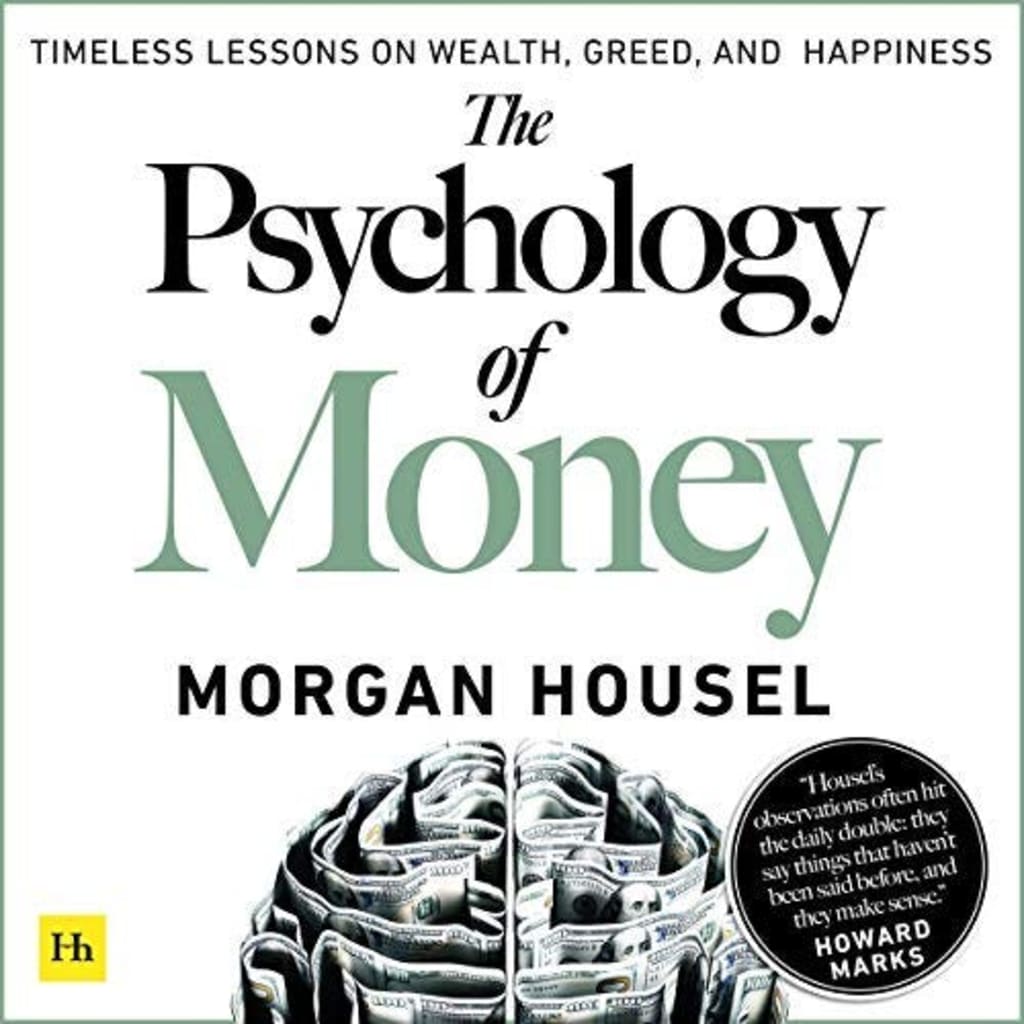The Psychology of Money
The Psychology of Money Summary

The Psychology of Money explores how money moves around in an economy and how personal biases and the emotional factor play an important role in our financial decisions, as well as how to think more rationally and make better decisions when it comes to money.
Our personal finances play a huge role in our lives. And yet people rarely discuss them and educate themselves on this topic. For this reason, many presumptions and false ideas about money have emerged over the years. They think having money is a result of luck or that rich people are all inheritors. Or perhaps wealth belongs only to those who disrupt the world and benefit from their discoveries.
Wrong! Money is a universal, circular asset in the world. And you too can become financially independent, if you choose to adopt a few wealth-growing practices and change your current mindset. At first, you’ll have to acknowledge your financial situation. Biased financial decisions are what stand in the way between your current life and the life you desire.
Then, it’ll be easier to spot and get rid of them. Your ways of seeking status, your envy, and other emotions that have control over you all play a significant role when it comes to your financial decisions. Of course, there are other things to explore when it comes to making better choices with your money. The Psychology of Money outlines what it is that you can do starting today to improve your financial status.
Here are my three favorite lessons from the book:
- Being greedy can turn out to be the biggest financial mistake you’ll ever make.
- Envy has no place in the money market, as it can blur your thinking.
- Our early experiences with money determine our financial decisions later on.
Lesson 1: When it comes to managing your money, it’s better to leave greed out of it
Are you a greedy person? Of course not! Or at least, that’s what you tell yourself. We all like to think highly of ourselves and blame our misfortune on unlucky odds. This is the case of Jesse Livermore, a stock market trader born in 1877.
Prior to the notorious market crash that occurred in 1929, he took a short position. This means that he made a bet that the stock market will fall. As it turns out, this was the best decision he’d ever make in his career, as he gained three billion out of it. Normally, this amount would’ve been enough to set him up for life. Well, not quite.
This winning trade made Livermore feel invincible, so it wasn’t long until he lost everything he’s earned by placing all the wrong trades. This sudden downfall pushed him to the edge, urging him to end his life one night. The problem was that his success made him want even a bigger slice of the cake, although he already had more than the average person could wish for. The lesson here is, don’t be greedy, and learn to be humble.
When you already have what you wished for or accomplished significant goals in your life, learn to be fearful, maintain your status, and enjoy the present, instead of always seeking more and more. When you’re scared of losing everything you have, you won’t be happy to risk it all for potential gains.
Lesson 2: Strong emotions such as envy can push you towards making sloppy decisions
When it comes to money and investing in general, there are certain factors that we should consider and learn how to control in order to become successful. Besides envy, fear of missing out is one of them. When you evaluate your investments and choose to place certain trades, you have to stick with them through good and bad.
Therefore, the emotional factor is one of the most important things you can work on if you want to become financially independent. Always remember that your journey will be different from any other person you know or heard of, so there’s no need to compare yourself to them or be jealous of anyone’s greater assets.
Just take the example of Rajat Gupta, the former CEO of McKinsey. Although he came from a modest background and made it to 100 million net worth, he still was envious of Warren Buffett for being a billionaire. As such, he committed insider trading, which is one of the most common, yet dangerous financial crimes for investors, and got charged with a substantial prison sentence for it.
In other words, he let envy get the best out of him, and paid for it a thousandfold. Was it worth it? Definitely not. However, his misfortune serves as a valuable lesson for anyone looking to make better financial decisions. Be rational, and think twice when it comes to money. Always filter the emotional factor out.
Lesson 3: The experiences we have early on in our life determine our financial decisions
We all grow up differently. While something may look natural to you, it may be unheard of for someone else. Just think about it this way: Is your childhood similar to someone born in 1900? 1960? The entire twentieth century? Of course not!
here are people growing up in times of a financial crisis. On the other hand, there are people who experience bull market trade even for a decade. As such, the two types would have very different opinions about what a good investment strategy consists of, whether a portfolio should be stock-based or bond-based, or how much risk is worth taking.
While we may think that we know it all or have no hidden biases, a study conducted by Ulrike Malmendier and Stefan Nagel proves that people invest according to how the economy looked like when they were young adults. As such, someone who’s experienced high inflation may not see bonds as a good investment, while someone who’s been through turbulent times for the stocks may think the opposite.
It is of utmost importance that we acknowledge our hidden biases and thinking traits, so as to be able to diminish them and make better choices. In general, any financial decision should always be backed up by sound analysis, reliable facts, and a mind open to a new perspective and constructive criticism.
Moreover, you should work on your ability to adapt to trends and destroy your phobia of new ones, even if it contradicts your inner beliefs. The money market leaves no room for subjectivity, biases, or impulsive decisions. Rushed investments can wipe off years of savings, while valuable ones can speed up your journey to financial freedom.
The Psychology of Money Review
If you feel like you’ve made all the wrong financial decisions, or that wealth is just not one of the things you’ll ever be able to achieve, The Psychology of Money is the book for you. Reading it will open your mind towards new perspectives and have you conduct an introspection to realize how biased you were all along. While this book may not comfort you, it will surely give you a series of areas that you can improve to see instant changes in your financial life.






Comments
Dark Secrets is not accepting comments at the moment
Want to show your support? Become a pledged subscriber or send them a one-off tip.